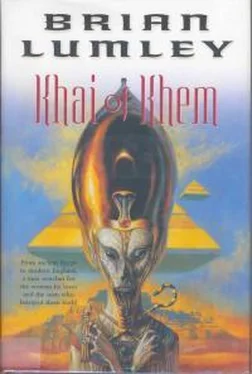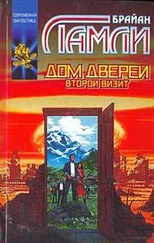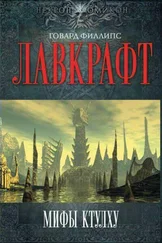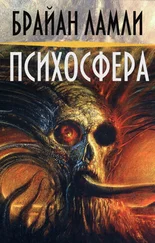Of necessity, Harsin Ben had to be at the pyramid’s site almost every day, but that was the one aspect of his work which displeased him: the sight of those polyglot slaves whose life’s blood stained (and not only figuratively) each single huge block of stone from which the pyramid was constructed. Khai, too, had found the sight of the myriad half-naked brown and verminous bodies that struggled, sweated, bled and died under the lash of Khasathut’s overseers painful and offensive. Often, during his lone wanderings about the city, whenever he found the vast pyramid looming before him, he had paused to wonder why these people were forced to remain here in Asorbes when their homelands lay beyond Khem’s farthest corners.
“Son,” his father had once explained, “the Pharaoh has decreed that his pyramid will be built in his lifetime. He will be buried within the completed structure to await the second coming of his own kind, Gods from the stars who brought Khasathut’s forebears here when the land was chaos. Because he knows that his time among mortal men is running out, he is in a hurry to see the work done. And so he takes slaves. Using Arabban slavers, he takes them from Therae, Nubia, Daraaf, Siwad and Syra—even from the hills of Kush, when he can get them. Aye, and the criminals of Khem, too—they also serve their sentences in the quarries and on the walls of the pyramid.” And Khai’s father had looked at him with wise eyes.
“I know what you are thinking, Khai, and even though your thoughts are deep and strange for a small boy, still I agree with them. You would not be my son if your thoughts were other than they are, for you are a kind boy, even as I am kind. But they are dangerous thoughts, my son, and must never be given voice, not in Khem. Console yourself as I do with this thought: your father only designs great monuments. He is not responsible for the way in which his masters choose to build them, or for the work-force they employ….”
So it was that in all Khai’s world, as in his father’s, the one black spot was the great pyramid. The pyramid … and perhaps the ghetto, that sprawling huddle of low, crumbling piles and crooked, smelly streets where the slaves were quartered, where they lived out their lives and reared the next generation which, upon reaching the age of eight or nine years, would commence working on the pyramid in its turn. As for the rest of Asorbes—indeed throughout the entire lands of Khem, from the Mediterranean to the Nubian border and from Kush and Daraaf to the Red Sea—Khai’s world was green and wonderful and teemed with life.
The river for most of its length harbored countless hippopotamuses and crocodiles, and in the forests the elephants and buffaloes were everywhere. Fishes proliferated in the Nile’s waters and mollusks grew large and fat in the warm mud of its banks and in the lakes and marshes. Cattle not too far removed from ancestral Bos primigenius were herded m their thousands along with sheep and goats, and the savannahs were alive with antelopes, gazelles and wild pigs.
It was a land of plenty, where a whole range of wild asses, ostriches, giraffes, aardvarks and lions wandered the forests and plains at will, and countless myriads of other animals sported around the water holes and in the long grasses of the savannahs. Though the horse was almost unknown in Khem, Khai had seen a small number of those graceful creatures imported from Arabba and lands east; and he knew that in the mountains of Kush, fierce tribesmen tamed wild ponies, riding upon their naked backs and using them for haulage and other domestic tasks. He had often wondered what it must be like to ride upon the back of a fleet-footed horse. Why, a simple horse would be able to run rings about one of Khasathut’s jewel-bedecked, lumbering ceremonial elephants!
Because of the number and variety of beasts and birds, Khem was a hunter’s paradise. Khai’s father had given him his first bow and quiver of arrows when he was not yet nine years old, and less than two years later, he had brought home a brace of fine geese shot in flight over the papyrus reeds on the banks of the Nile. On that occasion Khai had been in trouble, for he was only a small boy and he had returned home late, bedraggled and weary—and it was an exceptionally bad year for crocodiles. Several children and a number of adults too had been taken by the ugly reptiles, so that the city’s councilors had offered a goldpiece for every Nile crocodile killed.
It was curious to think that in at least one province downriver the crocodile was deified in certain seasons and its hunting utterly forbidden, when that same year in Asorbes the tanners had amassed such a heap of hides that there would be no shortage for several years and sandals, belts and other leather and hide goods were at their very cheapest.
“If it were not for the fact that your own hide is so soft and white,” Harsin Ben Ibizin had told his son, “and that you are the light of your mother’s life, then I would flay you alive for being so late home! Here I and your poor mother have sat and waited, not knowing if you lived or lay dead in the belly of some great croc, and you straggle home covered in Nile mud, and only a pair of scrawny geese with which to redeem yourself! Are these supposed to be worth a day’s waiting and worrying? You’ll not do it again, Khai Ibizin, d’you hear?”
And Khai had gone to bed without his supper; but later his mother, Merayet, had sneaked in to him with bread and meat and a cup of sweet wine. “My fine hunter,” she had called him, and had gone on to tell him that indeed his geese were excellent birds, glossy and fat. “We shall eat them tomorrow,” she said, “roasted on spits in the garden, when we all come home from the Pharaoh’s Procession.”
The Royal Procession, yes! And this would be the first time that Khai had ever seen it. The splendid pomp and ceremony of Khasathut’s quarterly parade, when the Pharaoh himself would appear to the people, to be praised and worshipped by them; when he would choose three more brides, as he did four times a year, to enter with him into the pyramid and the glory of matrimony with the great and omnipotent man-God. …
With the first rays of the morning sun—whose golden disk had been a god long before Khasathut’s many-times great-grandfather had become the first Pharaoh—the peoples of Khem were out in all their finery, thronging through the streets, squares and thoroughfares of Asorbes to gather at the base of the pyramid.
Arriving mid-morning with his parents, his older brother Adhan and his sister Namisha, Khai was astonished at the masses of color, the fantastic arrangements of flowers which adorned the sides of the great ramp, the thousands of pennants emblazoned with Khasathut’s double-looped ankh, and the gold and ivory gleam of the Pharaoh’s Black Guard where they stood single-ranked along the three edges of the pyramid’s plateau-like eastern summit.
Wide ramps of packed earth had once wound in a rising square whorl about a towering central pillar which had formed the core of the pyramid. Pre-shaped blocks of stone had been pushed, dragged and hoisted up these ramps to be positioned on the inside, thus forming the inner mazes, chambers and outer walls of that mighty monument. The north, south and west faces were now almost complete; they lacked only their facing of fine white limestone and the layer of beaten gold with which Khasathut intended eventually to cover them.
The eastern face, however, with its great ramp that ran up to it for almost half a mile from the distantly looming East Wall, was still incomplete. At its top it formed a man-made plateau. There the ranks of the Black Guard stood at ease, as they had stood since early morning, their spears leaning outward over the city; behind them a great pinnacle of carved stone in the shape of a vast arrowhead towered almost half as high as the plateau again.
Читать дальше








